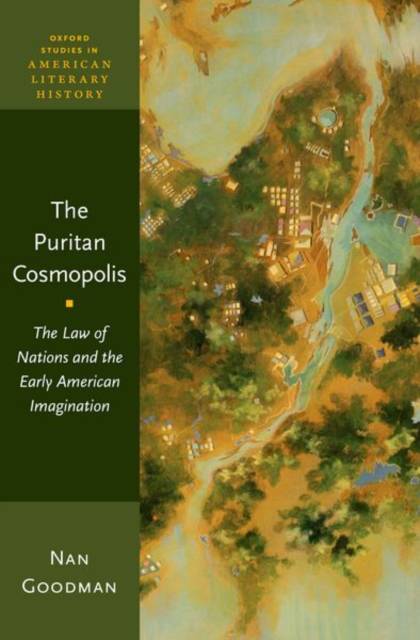
- Afhalen na 1 uur in een winkel met voorraad
- Gratis thuislevering in België vanaf € 30
- Ruim aanbod met 7 miljoen producten
- Afhalen na 1 uur in een winkel met voorraad
- Gratis thuislevering in België vanaf € 30
- Ruim aanbod met 7 miljoen producten
Zoeken
€ 169,45
+ 338 punten
Omschrijving
The Puritan Cosmopolis traces a sense of kinship that emerged from within the larger realm of Puritan law and literature in late seventeenth-century New England. Nan Goodman argues that these early modern Puritans-connected to the cosmopolis in part through travel, trade, and politics-were also thinking in terms that went beyond feeling affiliated with people in remote places, or what cosmopolitan theorists call "attachment at a distance." In this way Puritan writers and readers were not simply learning about others, but also cultivating an awareness of themselves as ethically related to people all around the world. Such thought experiments originated and advanced through the law, specifically the law of nations, a precursor to international law and an inspiration for much of the imagination and literary expression of cosmopolitanism among the Puritans. The Puritan Cosmopolis shows that by internalizing the legal theories that pertained to the world writ large, the Puritans were able to experiment with concepts of extended obligation, re-conceptualize war, contemplate new ways of cultivating peace, and rewrite the very meaning of Puritan living. Through a detailed consideration of Puritan legal thought, Goodman provides an unexpected link between the Puritans, Jews, and Ottomans in the early modern world and reveals how the Puritan legal and literary past relates to present concerns about globalism and cosmopolitanism.
Specificaties
Betrokkenen
- Auteur(s):
- Uitgeverij:
Inhoud
- Aantal bladzijden:
- 216
- Taal:
- Engels
- Reeks:
Eigenschappen
- Productcode (EAN):
- 9780190642822
- Verschijningsdatum:
- 14/03/2018
- Uitvoering:
- Hardcover
- Formaat:
- Genaaid
- Afmetingen:
- 157 mm x 239 mm
- Gewicht:
- 430 g

Alleen bij Standaard Boekhandel
+ 338 punten op je klantenkaart van Standaard Boekhandel
Beoordelingen
We publiceren alleen reviews die voldoen aan de voorwaarden voor reviews. Bekijk onze voorwaarden voor reviews.











